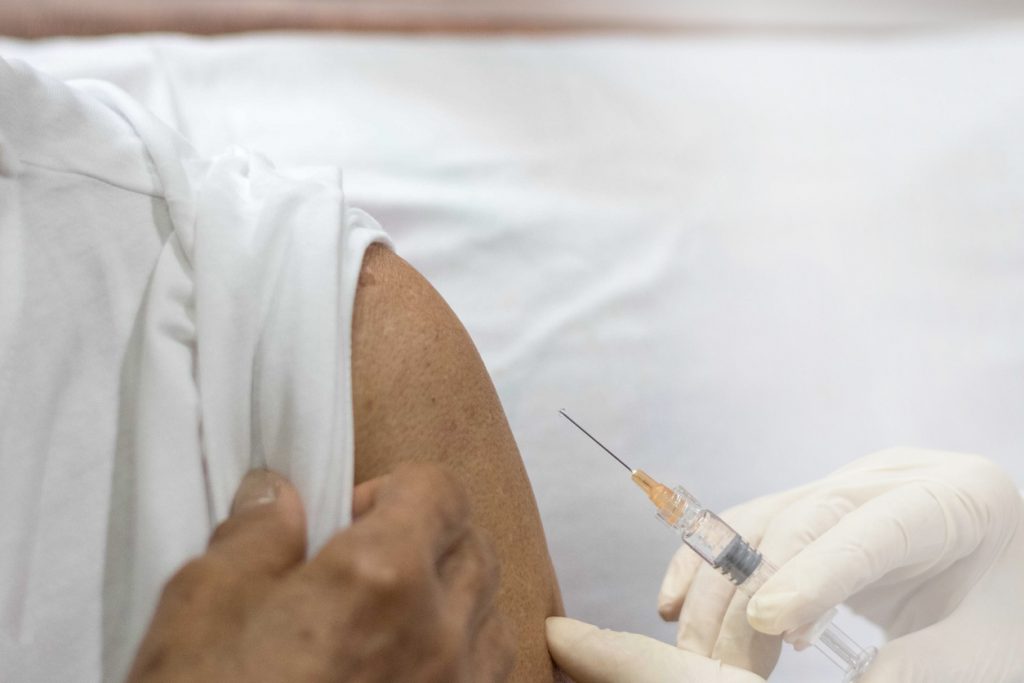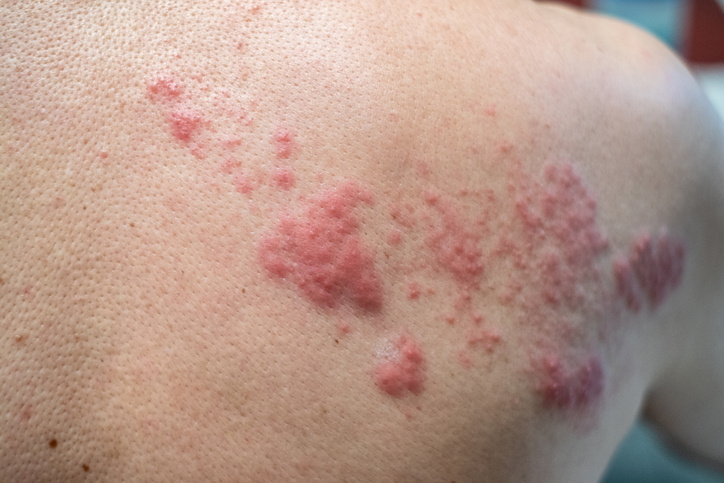Who Should Get the Shingles Vaccine?

Shingles is a painful skin condition that can develop in anyone who has had chickenpox. More than 95 percent of American adults have had chickenpox. Shingles causes a blistery rash that can occur anywhere on the body. Early symptoms of shingles are pain, tingling, burning, and itching in the area where the rash will eventually appear. The rash may not be visible for several days. Some people may also have a headache and fever. According to the CDC, one in three people in the U.S. will develop shingles in their lifetime.
What causes shingles?
The varicella-zoster virus, one of the herpes viruses, causes shingles. It’s the same virus that causes chickenpox. The virus can stay dormant for years in the body of anyone who has had chickenpox. When something triggers the virus to become active again, the person will develop shingles.
Who is most at risk for shingles?
- People over age 50
- Those with weakened immune systems, such as cancer patients
- People who have recently been ill
- Those who are under stress
Is shingles contagious?

Shingles is not contagious. It doesn’t spread from person to person, although those with shingles can spread chickenpox through the fluid in the blisters. A person can have shingles more than one time, although the rash usually affects a different place on their body.
Are there complications from shingles?
People over age 60 are more likely to have serious complications. The pain from the rash may continue long after the blisters have healed. Serious complications include neurological problems such as facial paralysis and swelling of the brain. Hearing and balance issues are other complications. Shingles around the eye can lead to vision problems.
Who should be vaccinated for shingles?
Shingrix has been the recommended shingles vaccine in the U.S. since 2017. It replaced an earlier vaccine called Zostavax. Two doses of the Shingrix vaccine is recommended for those age 50 and older who are in good health. Shingrix vaccine is more than 90 percent effective at preventing shingles, and immunity remains strong for at least seven years. People can get Shingrix even if they have had the previous vaccine, have already had shingles, or don’t know if they have had chickenpox.
RMD Primary Care
The physicians at RMD Primary Care can treat patients who develop shingles. If you suspect you may have shingles, you should make an appointment with the doctor as soon as possible. Patients can get more information about the Shingrix vaccine from their healthcare provider. Contact our Lawrenceville office today.




